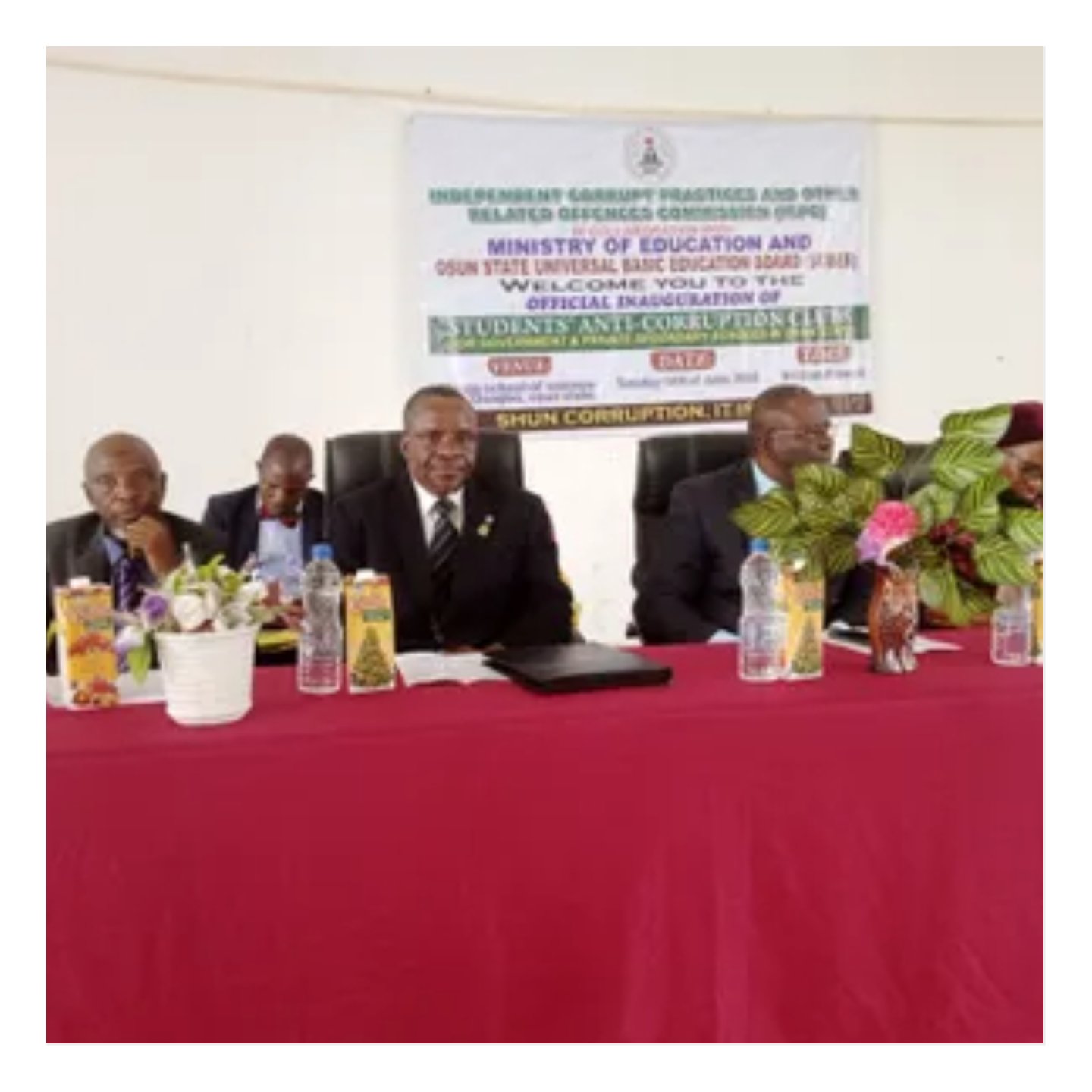In a bid to further curb corrupt practices in the society, the Independent Corrupt Practices And Other Related Offences Commission (ICPC) has launched students’ anti corruption clubs across schools in Osun.
The move is to sensitise young Nigerians on the evil of corruption in the society.
Led in collaboration with the Osun State Government, the anti-graft agency inaugurated the anti-corruption club in 68 public and private schools across the State.
Highlighting the negative effects of corruption on the society, the Osun Commissioner for Education, Folorunso Oladoyin described it as an evil that hinders speedy development in the society.
Oladoyin, who was represented by the Permanent Secretary, Ministry of Education, Adelani Aderinola stated that there was nothing exemplary in getting involved in corrupt practices.
The Commissioner stressed that it can also deny the student quality education.
While admonishing students against corrupt practices, the Education Commissioner said the essence of the club is to sensitise the nation, starting from schools.
In his keynote address, Professor Bola Owosanoye, the ICPC the Chairman, represented by Osun State Anti-Corruption Commissioner, Babalaro Shu’aib added that corruption went beyond pecuniary issues.
“Section 2 of the Corrupt Practices and other related Offences Act, 2000 defines corruption as anything that include fraud, gratification and other related offences and any act that snacks of lack of integrity can qualify as other related offence and can be punished under the ICPC act 2000 and any other law that seeks to prevent corruption,” he said.
While identifying building institutional capacity and reinvigorating positive values among youths as one of the surest ways to prevent corruption in the society, he noted that preventing it at an early stage is always the best.
He described youths anywhere in the world as the backbone of national development because they possessed energy, talent and valour which if properly galvanised and channeled, could lead to positive national transformation, growth and development.
Prof. Owasanoye hinted that, “the Commission has been able to rejuvenate the nation’s positive values, followed up on the formation of clubs with the introduction of the National Values Curriculum (NVC) in conjunction with the Nigeria Education Research and development council (NERDC).”

